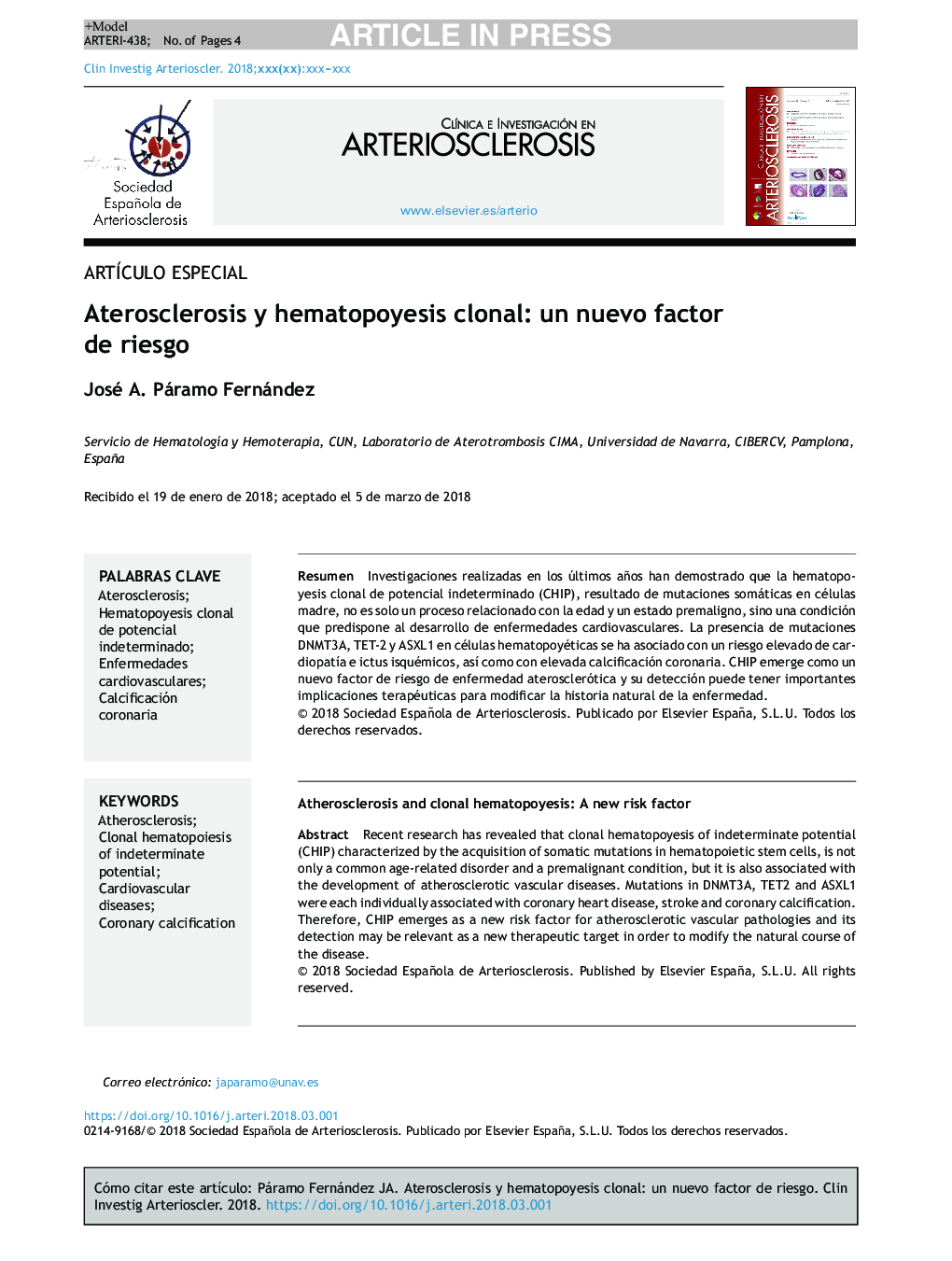| Article ID | Journal | Published Year | Pages | File Type |
|---|---|---|---|---|
| 8649675 | Clínica e Investigación en Arteriosclerosis | 2018 | 4 Pages |
Abstract
Recent research has revealed that clonal hematopoyesis of indeterminate potential (CHIP) characterized by the acquisition of somatic mutations in hematopoietic stem cells, is not only a common age-related disorder and a premalignant condition, but it is also associated with the development of atherosclerotic vascular diseases. Mutations in DNMT3A, TET2 and ASXL1 were each individually associated with coronary heart disease, stroke and coronary calcification. Therefore, CHIP emerges as a new risk factor for atherosclerotic vascular pathologies and its detection may be relevant as a new therapeutic target in order to modify the natural course of the disease.
Keywords
Related Topics
Life Sciences
Biochemistry, Genetics and Molecular Biology
Physiology
Authors
José A. Páramo Fernández,
